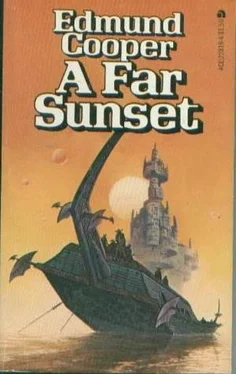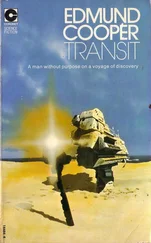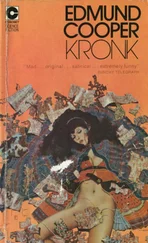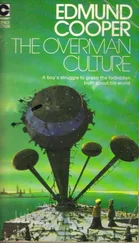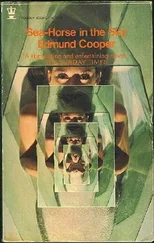Mylai Tui had three fingers and a thumb on each hand. Everyone else he had met had three fingers and a thumb on each hand. And, because of the command of Enka Ne at their first meeting, he himself now conformed, having had each of his little fingers struck off.
Consequently, he had assumed that three fingers was normal —biologically normal. But what if that were not entirely so? The woman on the other side of the mound had given birth to a baby with three fingers on one hand and four fingers on the other. How many more women in Baya Nor bore children with four fingers and a thumb on one of their hands? And, carrying the thought further, how many women bore children with four fingers and a thumb on each of their hands?
That day, after returning home, he had asked Mylai Tui to let him see her hands. It was then he realized that he had never looked at them closely—really closely—before. He inspected them, cursing his rudimentary knowledge of anatomy and bemoaning the fact that he did not have a magnifying glass.
Then he discovered that the bone bump on the side of her left hand was perhaps a little longer and more uneven than the bump on the side of her right hand. He took her left hand again, staring at it intently. Surely, there was the faintest mark of a scar?
‘Mylai Tui, did you ever have four fingers on this hand?’ he had asked abruptly.
She had snatched the hand away from him as if he had offered her a deadly insult. And she had stood there, shaking and trembling and staring at him with eyes wide with horror.
At first, he thought she had misunderstood him. ‘I ask only if you ever had four fingers on this hand,’ he had repeated.
‘Defiler!’ she screamed. ‘Outlander! Beast! Savage!’
Then she had fled from the house.
He was completely baffled. Time passed, night came, and he thought that perhaps she had gone for good. She did not return until shortly before dawn of the following day. Then she came back and woke him up peremptorily. She was carrying a long thin korshl—the Whip of Correction that was used on petty criminals.
‘Oruri has condescended to give guidance,’ she said tonelessly. ‘I have offended my lord. The offence cannot remain. Grace me with one blow of the korshl for each of the fingers on my hands.’
He was dumbfounded. ‘Mylai Tui, I cannot do this thing.’
‘That is my punishment,’ she said, ‘according to the wisdom of Oruri. Six blows from my lord—or I must leave this house where I have been shamed for ever.’
He saw that she meant it. He did not wish to lose her. Still not understanding, he took the korshl.
‘Lay heavy, lord,’ said Mylai Tui, presenting her back. ‘Oruri frowns upon a light penance.’
He struck, but apparently he did not strike hard enough. For his kindness which, said Mylai Tui, she did not deserve, Oruri would graciously award her two extra blows.
Early in the morning and still heavy with sleep, Paul Marlowe found himself participating in a waking nightmare. Mylai Tui was clearly not to be satisfied until the blood ran down her back. Eventually, in desperation he did in fact draw blood. The sight of it dropping down to make small thin rivulets on her legs, seemed to give Mylai Tui considerable satisfaction.
When the prescribed punishment was over, she fainted. Since that time he had not dared to refer to her fingers again.
Now, as he sat on the verandah step, sipping his kappa spirit, he became suddenly filled with a great and impersonal sadness—not only for himself and Shah Shan and Mylai Tui, but for all living things on all possible worlds scattered throughout the black starlit vault of space. He was sad because of the very predicament of living. Because every living creature—like the guyanis, the brilliantly coloured butterfly that he had seen killed by a leathery bird when he travelled with Enka Ne along the Canal of Life—was doomed to journey from darkness to darkness, with only a brief burst of sunlight and pain between the two long aspects of eternity. The guyanis had died, then the bird who had killed it was struck down by a warrior, then the warrior himself died at the command of Enka Ne. Now Enka Ne was dead and another Enka Ne was alive. And doubdess many more guyanis butterflies had been torn to pieces by toothed beaks. And doubtless many more warriors had gone to the bosom of Oruri.
Multiply these things by a billion billion, square the number and square it again. The resulting figure would still not be big enough to tally all the tragedies, great and small, taking place throughout the universe during one billion billionth part of a second.
Yes, thought Paul, living was indeed a sad situation—only slightly less sad than dying…
The sun had set and the nine moons of Altair Five were swarming silently across the sky. They were not bright enough to cast nine distinct shadows. They merely coated the sadness of the world with a threadbare film of silver.
Suddenly, Paul dropped the calabash and stiffened. Coming along the dusty track leading to his house there was a youth clad in a tattered samu and carrying a begging bowl. There was something about the walk, something about the gaunt moon-silver features … Paul Marlowe realized that he was trembling.
‘Oruri greets you,’ said the boy.
‘The greeting is a blessing,’ responded Paul mechanically.
‘Blessed also are they who have seen many wonders.’ The boy smiled. ‘I am Zu Shan, the brother of Shah Shan. I am also the gift of Enka Ne.’
It was the middle of the night. Mylai Tui was asleep. Paul was awake. Outside the house, Zu Shan was lying half awake and half asleep with three other boys on a rough pile of bedding in the skeleton of the school that he was helping to build for Poul Mer Lo, the teacher.
Almost five Bayani months had passed since Enka Ne the 610th had assumed his spiritual and temporal role. During that time he had consistently ignored Poul Mer Lo. The attitude of Enka Ne passed down through his council, his administration and his religious orders. It was as if those who controlled the destiny of Baya Nor had decided to unsee what they had seen.
All of which, thought Paul, was very strange. For though he had intentionally kept out of the way of the new god-king, he had continued with his innovations. The school was one of them.
It had started really with Zu Shan, who was the first official pupil. Then, as Paul was wandering through the city one morning, he came across a beggar—a small boy of five or six who, even by Bayani standards, seemed exceedingly dullwitted. He did not even know his own name. Looking at him, seeing his ribs sticking out and the tight flesh clinging pathetically to the bones of his misshapen legs, Paul was more than ordinarily moved. He was quite accustomed to the sight of beggars in Baya Nor, for the economy was not prosperous and the organization of labour was atrocious.
But this small child—though there were others like him— appeared to possess a mute eloquence. He did not talk much with his lips. All real communication seemed at first to be made with his eyes. They alone seemed to tell his entire story—a common one. He came of a family that was too large, he was not old enough or strong enough to do useful work, and in desperation his parents had trained him to beg and consigned him to the care of Oruri.
Then the eyes had said ‘Pick me up, take me home. Pick me up, take me home.’ Impulsively, Paul had scooped up the bony bundle and had taken it back to Mylai Tui. The boy would never be able to walk properly, for the parents, with practical consideration for the child’s career as a beggar, had broken the bones in both legs in several places, and they had knit together in a crazy and grotesque fashion.
Paul called the boy Nemo. He never did need to talk a great deal. It was not until later that Paul discovered he was a natural telepath.
Читать дальше
